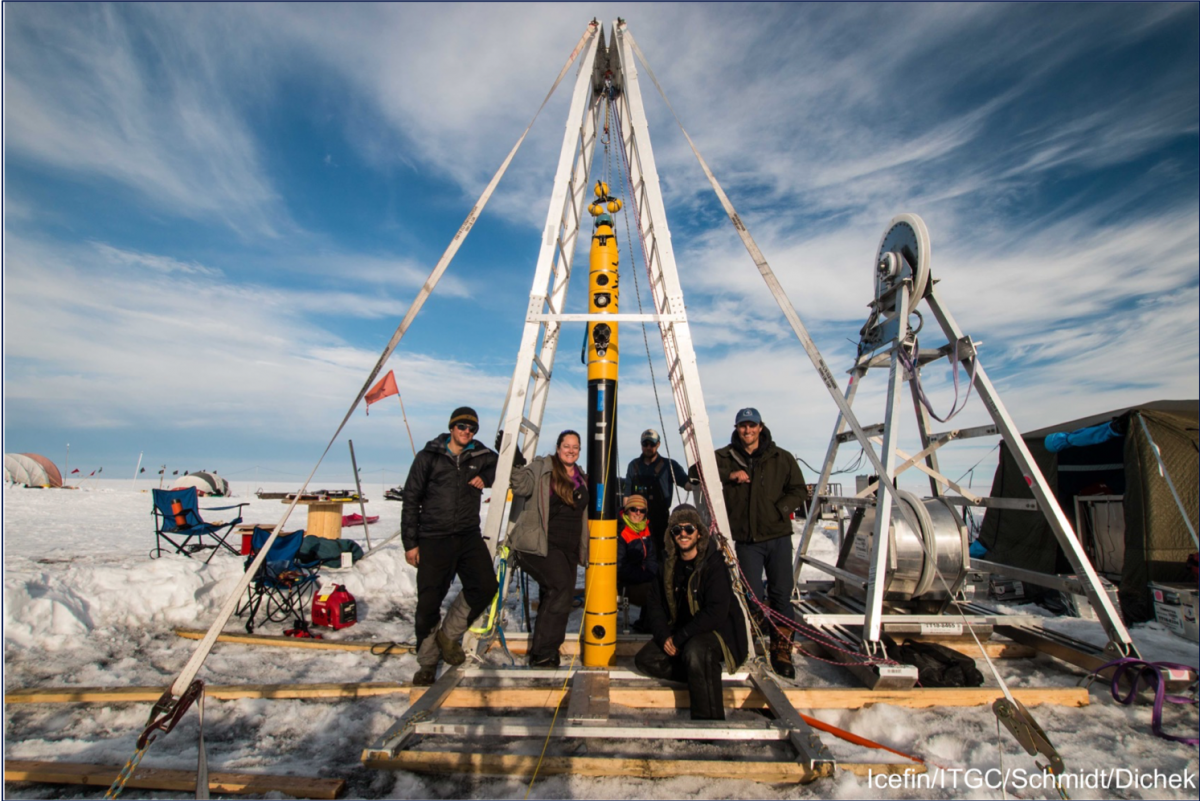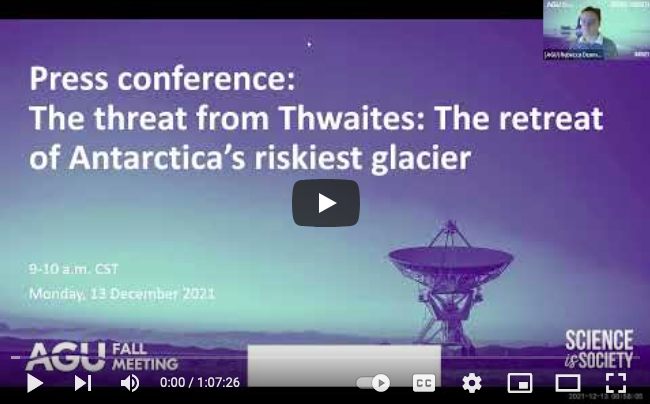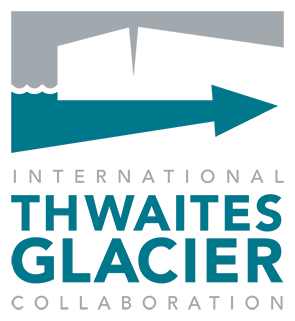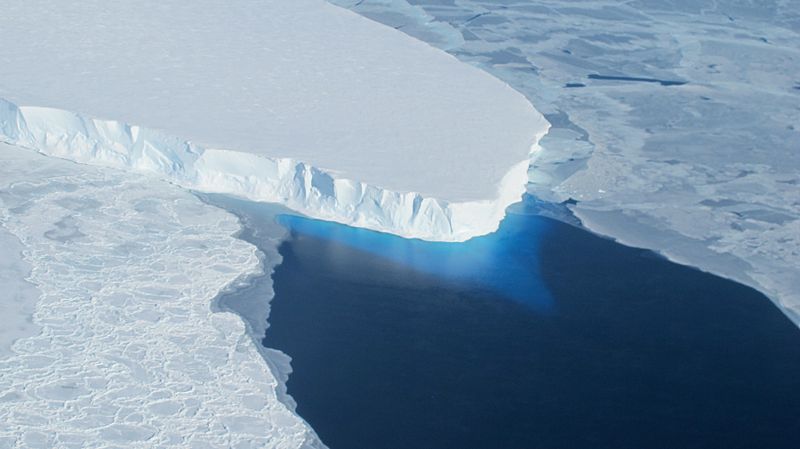ITGC scientists addressed reporters on Monday, December 13, 2021, at the American Geophysical Union meeting, describing the rapid retreat of Thwaites Glacier and the implications that will have on our planet in the coming years. Antarctica’s Thwaites Glacier is retreating rapidly as a warming ocean slowly erases its ice from below, leading to faster flow, more fracturing, and a threat of collapse, according to an international team of scientists. The glacier is the size of Florida or Britain and currently contributes four percent of annual global sea level rise. If it does collapse, global sea levels would rise by several feet—putting millions of people living in coastal cities in danger zones for extreme flooding.
NOTE: Due to some inaccuracies in media coverage following this press release, the team would like to clarify the timeline of estimated impacts from the potential collapse of Thwaites Glacier. The “chain reaction,” beginning with the potential collapse of Thwaites’ Eastern Ice Shelf would set in motion a long-term process which would eventually result in global sea level rise. While the initial steps of ice shelf collapse, glacier speed-up, and increased ice-cliff failure might happen within a couple of decades, the “2 to 10 feet” of sea level rise will require centuries to unfold — and impacts can still be mitigated depending on how humans respond in coming decades. Risk of multiple feet of sea level rise will not happen this decade (and likely not even in the next few decades).
Additionally, the ITGC science community does not use the term "Doomsday Glacier" when referring to Thwaites, because it gives the inaccurate impression that the disaster is sudden, and inevitable, and akin to nuclear war, which is not the case.
 Read the press release from the scientists at the press conference
Read the press release from the scientists at the press conference
 Watch the press conference on AGU's YouTube channel
Watch the press conference on AGU's YouTube channel
Related coverage:
From the BBC
From Yahoo
From CNBC
From Washington Post







